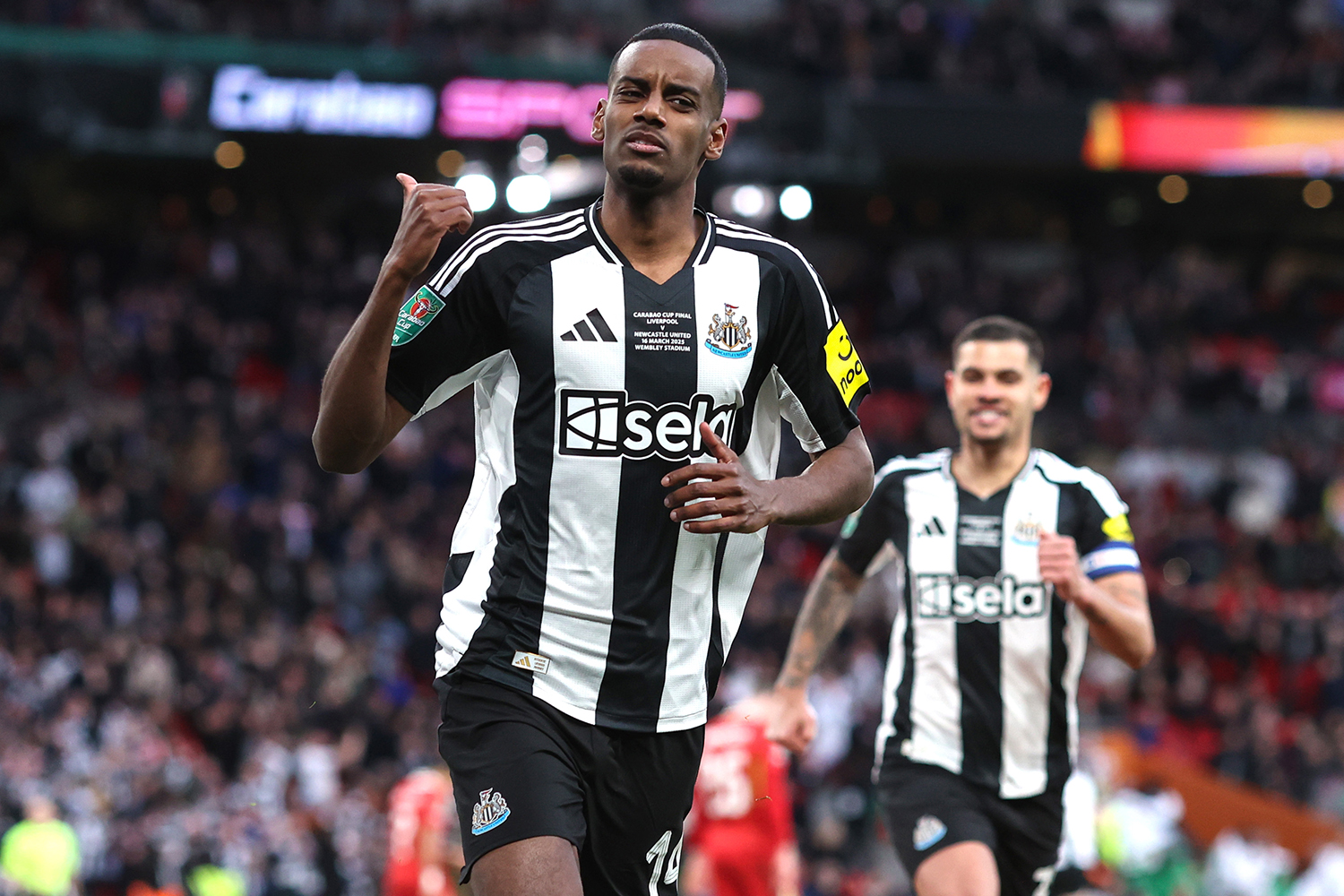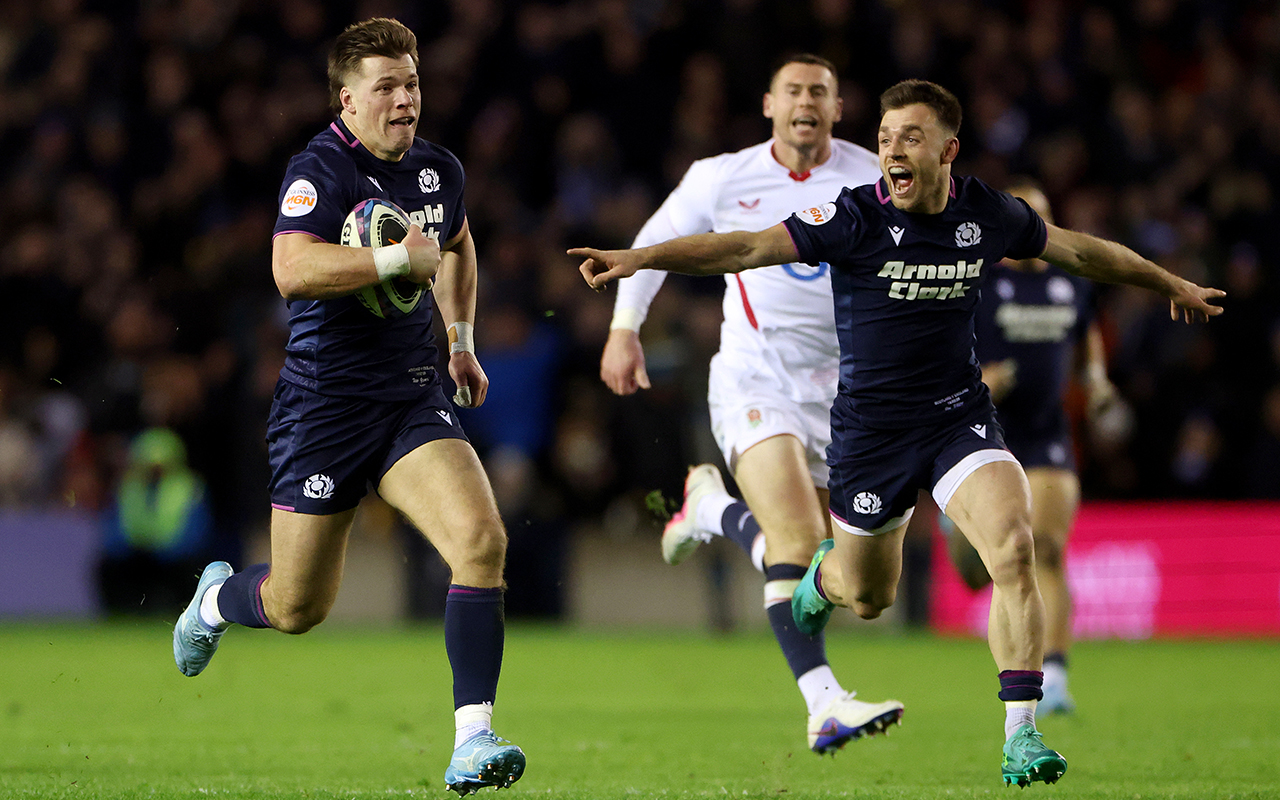Bergamo is not the most obvious place to start contemplating the unravelling saga of Alexander Isak, but the comparison is an instructive one.
On Tuesday, the Italy striker Mateo Retegui left Atalanta for the Saudi Arabian club Al-Qadsiah. The 26-year-old had spent just a season at the club, but his departure still stung. He had finished the campaign as Serie A’s capocannoniere, its leading scorer. He had produced the most prolific top-flight season in Atalanta’s history.
There was something particularly compelling about his story, too. Born and raised in Argentina, Retegui’s first taste of European football had been as an Italian international; he was eligible through his grandparents. (He is, to use Stanley Tucci’s phrase, Italian on both sides.) Roberto Mancini, the manager who had spotted him, thought he had something of the Gabriel Batistuta about him.
At first, the echo was a soft one. Retegui scored seven goals in his first campaign in Italy, playing for a modest Genoa side. At Atalanta, though, he flourished. He was granted the nickname Retegol, almost a tautology: rete means net in Italian anyway. Gian Piero Gasperini, his coach, called him “extraordinary”. Luciano Spalletti, the former national team coach, preferred “lethal”.
His 25 goals last season helped drive Atalanta – a traditionally modest, in both senses of the word, side from the achingly beautiful town of Bergamo an hour or so outside Milan – to the thick of the Serie A title race. Gasperini’s team fell away from contention only in March, eventually ending the season third, equalling the club’s highest ever finish.
The prospect of selling him, then, should have been so galling as to be unconscionable to Luca Percassi, the club’s chief executive, and to Tony D’Amico, his well-regarded sporting director. And yet, when Al-Qadsiah – backed not by Saudi Arabia’s sovereign wealth fund but by Saudi Aramco, which is almost as good – offered about £56 million for his services, the club did not baulk.
This is, after all, what Atalanta do. It is what they did last summer, when Juventus bought the midfielder Teun Koopmeiners, and the summer before that, when Manchester United appeared with a scarcely believable offer for Rasmus Højlund, or the year before that, when Cristian Romero went to Tottenham. It is what they expect to do again, in the next few weeks, when Ademola Lookman joins Inter.
Indeed, so often do Atalanta sell that Percassi, the son of the club’s long-term majority owner, has been granted the nickname “The King of Capital Gains”. It is said in acrimony or bitterness, but admiration. D’Amico has come to be regarded as the best sporting director in Italian football: not because Atalanta sell, but because they sell well, and they use the money they make to get better.
The contrast with the angst that has engulfed Newcastle over the past 10 days, as the prospect of Isak leaving St James’ Park loomed ever larger, is striking. On Tyneside, the very idea that the club – backed, lest we forget, by the wealth of Saudi Arabia’s Public Investment Fund – might sell the 25-year-old Swede has been treated almost as a heresy, a grievous insult to Newcastle’s existential honour.
Newcastle, the rhetoric goes, are going places. Last season, they won their first trophy for 70 years, outplaying Liverpool in the Carabao Cup final. Eddie Howe has, astutely, led them to the Champions League for the second time in three seasons. There are plans for a new stadium, a strengthened squad, a concerted presence among the elite.
Newsletters
Choose the newsletters you want to receive
View more
For information about how The Observer protects your data, read our Privacy Policy
They are an admirably ambitious club, and ambitious clubs – repeat ad nauseam – do not sell their best players. They certainly do not sell their best players to their rivals.
That has been Newcastle’s stance for the past couple of weeks, as the Isak situation suddenly started to simmer to a boil. The precise timeline is a little confusing; from the outside, it looks an awful lot like the trigger was Liverpool’s decision to nip ahead of Newcastle in the race to sign Hugo Ekitike. That seems counter-intuitive.
Regardless: last weekend, Howe omitted Isak from a pre-season friendly at Celtic, insisting that he believed his striker would stay, but acknowledging that the speculation – and at that point, it was only speculation, Liverpool have never made a formal bid for him – was something the player had to process. A few days later, Isak did not join Newcastle on their pre-season tour to Asia. There was talk of a minor thigh strain.
Then, on Thursday, it emerged that Isak had told Newcastle he wanted to explore the idea of a move away. Quite where that move might lead him is not entirely clear. Liverpool have now signed Ekitike; although the champions do have the funds available to add Isak, too, getting both into a team that already contains Mohamed Salah and Florian Wirtz would be a challenge. Chelsea have already signed Joao Pedro, and Liam Delap. Arsenal appear committed to a move for Victor Gyokeres.
Newcastle, for their part, continue to insist this is all immaterial. There is no price at which they will do business for Isak: that remains their position. They hope to be able to talk their striker round, though in all likelihood the real issue may be pecuniary. Isak’s logic is blunt, but it is fair. If Newcastle think he is worth a nine-figure fee, of the sort comparable to Kylian Mbappé, then they probably have to pay him as such.
There are plenty who would see their approach as proof of the club’s determination to establish themselves among the elite; keeping hold of Isak could be read as proof of Newcastle’s strength, its virility.
Besides, the idea that they might be forced to sell by an avaricious raid from one (or more) of the superpowers they are committed to overthrowing fits nicely into the established narrative, the one that states that the Premier League’s financial profitability and sustainability regulations – gathered together by that dreaded acronym, PSR – are specifically designed to limit Newcastle’s spending.
In this reading, English football’s great (Saudi-funded) power in waiting is being constrained by wholly artificial rules, self-interested, protectionist measures endorsed and enforced by the big six.
That understanding, though, is incomplete. It is an abiding truth of football that almost every club has to sell in order to fund growth. There are exceptions: Real Madrid, certainly in this century; Manchester City in their current guise and Chelsea, under the auspices of Roman Abramovich; Manchester United, mostly.
But other than those exceptional circumstances, the pattern holds, across countries and across eras. Liverpool sold Philippe Coutinho to buy Alisson and Virgil van Dijk. Juventus sold Zinedine Zidane to buy Gianluigi Buffon, Lilian Thuram and Pavel Nedved. Barcelona sold Ronaldo, the original one, and bought Rivaldo.
It is not a guarantee of success, of course; spending the money still requires skill. Tottenham spent the money raised by selling Gareth Bale on Paulinho and Roberto Soldado and Erik Lamela. In time, though, even that was not so bad: Christian Eriksen joined Spurs that summer, too; Dele Alli and Eric Dier joined a year later, as the outline of the team that would take the club to a Champions League final started to take shape.
That is not to say it would not hurt for Newcastle to lose a player of Isak’s quality; of course it would. It is not to say that the club should not scrabble to retain him; of course they should. But the idea that his sale would be proof that the game’s establishment have conspired to restrict Newcastle – that the club’s ambitions will forever be held in check by not being able to buy, and then retain players, exactly as they would wish – is diametrically wrong. Having to sell players to grow would not make Newcastle an exception. It makes them the rule.
Nor is selling players any check on growth. Untrammelled spending, the bankrolling of a club by a nation state, is not the only way to change a team’s status in the game’s grand hierarchy. There are other ways to succeed. They just take more time, require more skill, and feel more worthwhile.
Atalanta are not owned by a sovereign wealth fund. They spend only what they can raise. And, with a far smaller stadium than Newcastle, in a league without colossal television revenues, against a backdrop of decades of perfectly contented mediocrity, they have now finished outside Serie A’s top five only once since 2018. In 2024, they managed to win the Europa League, the club’s first ever continental honour.
This week, Atalanta sold their prolific striker. Their plan, as it always is, is to take the money from one individual, and use it to make a stronger team.
Photograph by Charlotte Wilson/Getty Images



